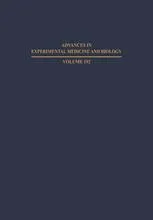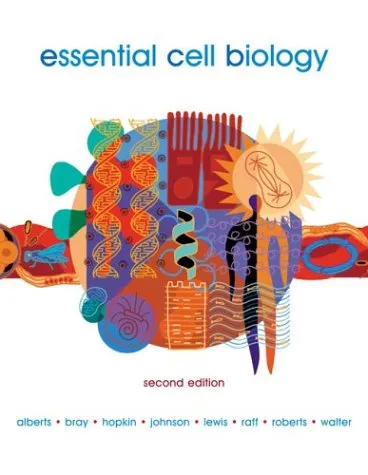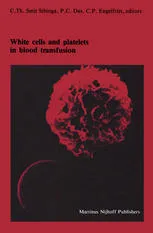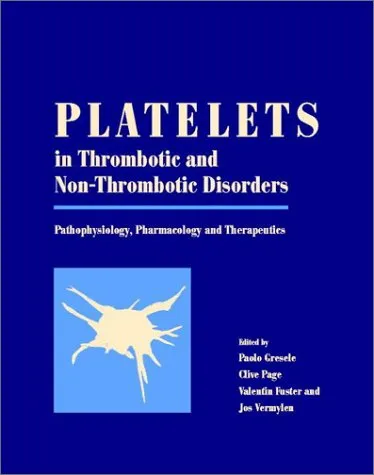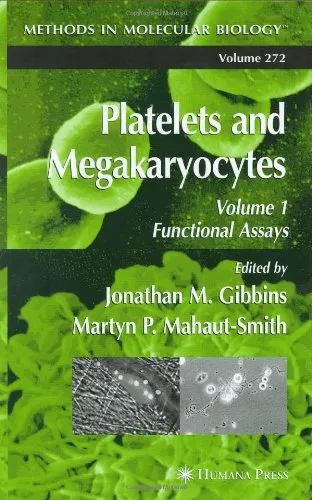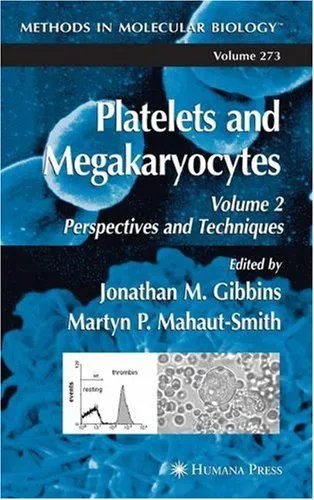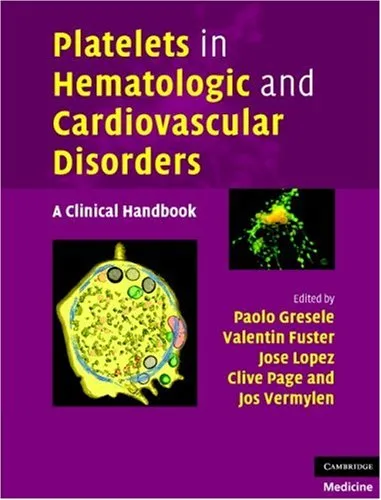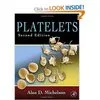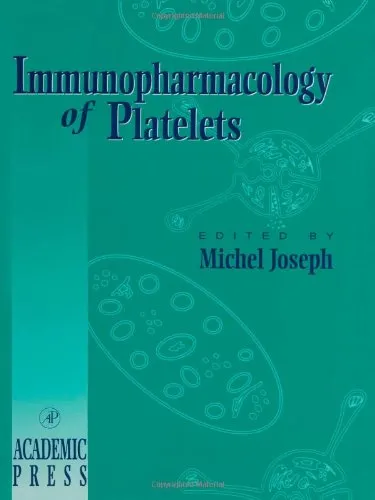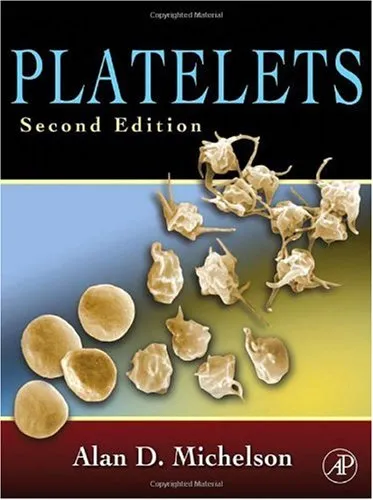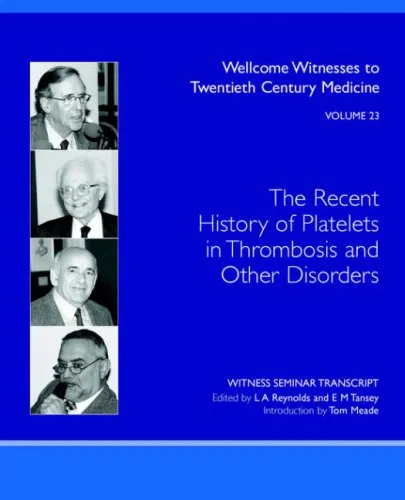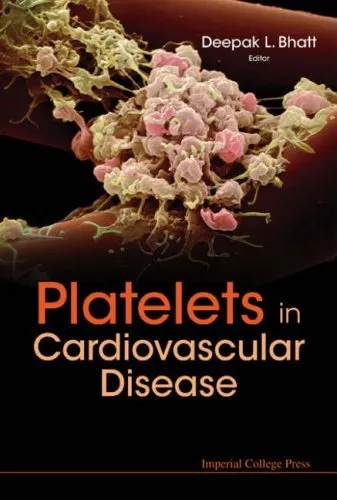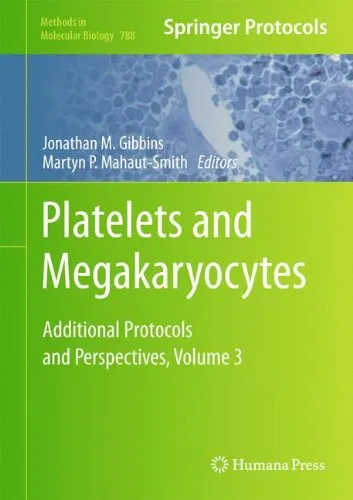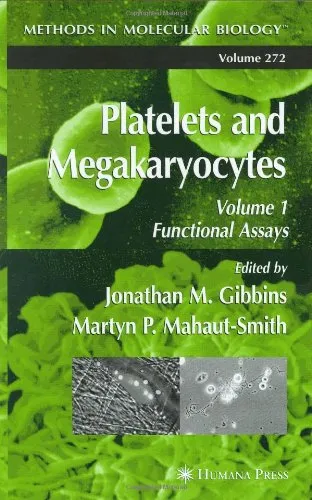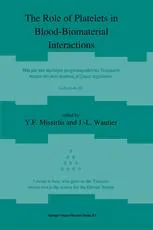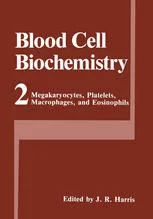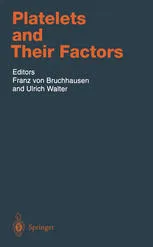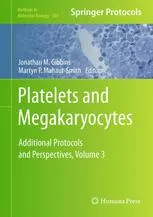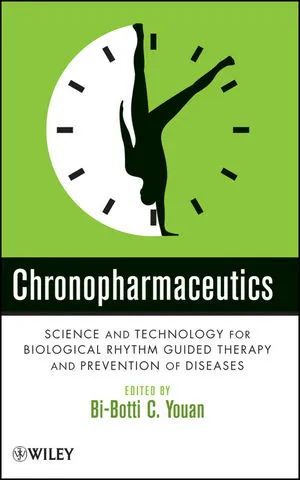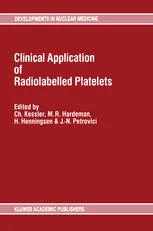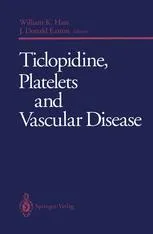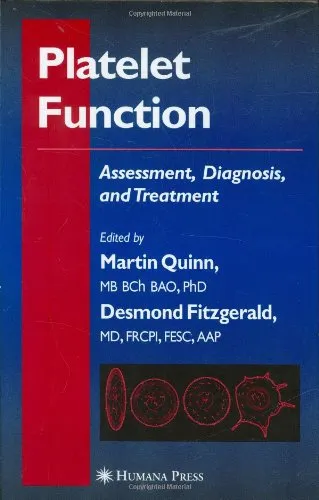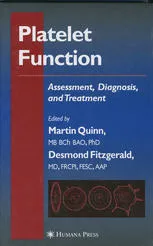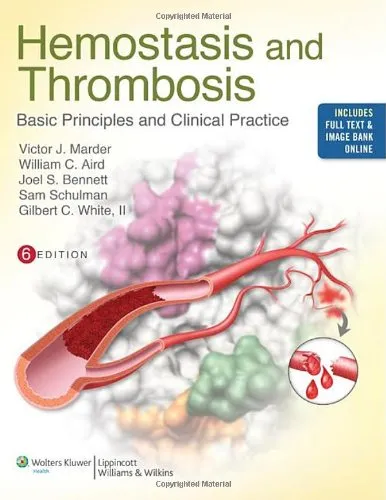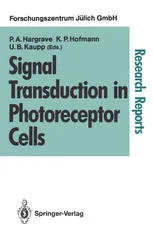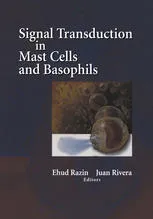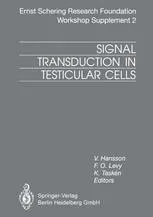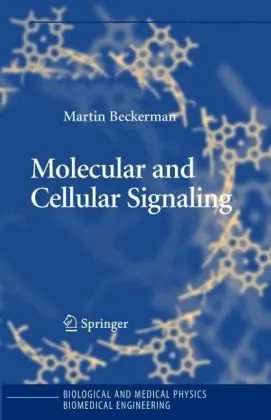Mechanisms of Stimulus—Response Coupling in Platelets
4.0
بر اساس نظر کاربران

شما میتونید سوالاتتون در باره کتاب رو از هوش مصنوعیش بعد از ورود بپرسید
هر دانلود یا پرسش از هوش مصنوعی 2 امتیاز لازم دارد، برای بدست آوردن امتیاز رایگان، به صفحه ی راهنمای امتیازات سر بزنید و یک سری کار ارزشمند انجام بدینکتاب های مرتبط:
معرفی کامل کتاب "Mechanisms of Stimulus—Response Coupling in Platelets"
کتاب حاضر یک منبع جامع و بینظیر در زمینه مطالعه مکانیسمهای ارتباط تحریک-پاسخ در پلاکتها است. نویسندگانی چون 'Neville Crawford', 'J. Westwick', 'M. F. Scully', و 'V. V. Kakkar' به مفهومسازی و ارائه اطلاعات نوین در این کتاب پرداختهاند. تحقیقات این نویسندگان به ما کمک میکند تا فرآیندهای پیچیدهای را که در درون پلاکتهای خونی به وقوع میپیوندد، بهتر درک کنیم.
خلاصهای از کتاب
این کتاب به بررسی عمیق مکانیسمهای سلولی و مولکولی میپردازد که به پلاکتهای خونی اجازه میدهند به محرکهای مختلف واکنش نشان دهند. پلاکتها نقش بسیار مهمی در فرآیند لختهشدن خون دارند و درک صحیح از این مکانیزمها میتواند به توسعه روشهای درمانی نوین برای بیماریهای خونریزیدهنده و نیز بیماریهای ترومبوتیک منجر شود. کتاب شامل مباحثی نظیر ترکیب شیمیایی پلاکتها، گیرندههای سطحی و سیگنالینگ داخل سلولی است که در هر بخش به تفصیل توضیح داده شدهاند.
نکات کلیدی
- شرح کامل ساختار و عملکرد پلاکتها
- توضیح فرآیندهای انتقال سیگنال داخل سلولی
- نقش پلاکتها در بیماریهای خونی و ارتباطات بالینی آنها
- بررسی تکنیکهای نوین تحقیقاتی در مطالعه پلاکتها
نقلقولهای معروف از کتاب
"درک واکنش پلاکتها به محرکها نهتنها به علومی پایه کمک میکند، بلکه بر توسعه راهکارهای درمانی نیز تأثیر شگرفی دارد."
"پلاکتها میتوانند بهعنوان اولین پاسخدهندگان به ترومای عروقی عمل کنند، و این توانایی آنها به واسطه سامانههای سیگنالینگی است که به دقت تنظیم شدهاند."
چرا این کتاب مهم است؟
اهمیت این کتاب در توصیفات دقیق و هماهنگ از مکانیسمهای پلاکتی نهفته است که میتواند مبنایی برای طراحی داروهای جدید علیه بیماریهای خونی فراهم کند. بسیاری از پژوهشگران، دانشجویان و متخصصان پزشکی از این کتاب به عنوان یک مرجع آموزشی و تحقیقی استفاده میکنند. افزون بر این، درکی که این کتاب از تواناییهای پلاکتها به ما میدهد میتواند ما را در مسیری هدایت کند که بتوانیم به کنترل بهینهتری در درمان اختلالات پلاکتی دست یابیم.
Introduction
The complexity of how platelets, the small cells that circulate in the blood, respond to various stimuli is both fascinating and crucially important to our understanding of cardiovascular health and disease. "Mechanisms of Stimulus—Response Coupling in Platelets" offers an in-depth exploration of the biochemical and physiological processes that dictate platelet behavior. This book is an invaluable resource for researchers, clinicians, and students aiming to comprehend the detailed mechanisms of platelet function and their implications in thrombosis and hemostasis.
Detailed Summary of the Book
This comprehensive volume delves into the multifaceted processes that drive stimulus-response coupling in platelets. Throughout the chapters, the book dissects the molecular basis and the signaling pathways that underpin platelet activation and aggregation. It covers a wide array of topics, from the role of specific receptors and signaling molecules to the influence of genetic and environmental factors. The authors have meticulously compiled research findings to provide a coherent narrative that enhances our understanding of platelet physiology. The book is structured to guide readers through basic concepts before tackling complex topics, making it accessible yet challenging for individuals at various levels of expertise.
Key Takeaways
- Understanding of the receptor-ligand interactions that trigger platelet response.
- Insight into the intracellular signaling pathways that regulate platelet activation.
- Knowledge about the role of secondary messengers in platelet function.
- Impact of genetic variations on platelet behavior and its implications in disease.
- Potential therapeutic targets for modulating platelet activity in clinical settings.
Famous Quotes from the Book
“Platelets are not merely reclusive cellular fragments, but pivotal players in the vast arena of hemostasis.”
“The study of platelets is akin to deciphering the language of cells, each signal a word that shapes cellular fate.”
Why This Book Matters
The interaction of platelets within the vascular system is a fundamental aspect of both normal physiology and pathological conditions such as atherosclerosis and thrombosis. This book is of paramount importance because it sheds light on the intricate details of how platelets function and respond to various physiological cues. By highlighting the mechanisms of stimulus-response coupling, the authors provide insights that could lead to the development of new therapeutic strategies aimed at treating cardiovascular and bleeding disorders. Moreover, the book lays a robust foundation for ongoing research in platelet biology, making it a crucial reference for both current understanding and future advancements in the field.
دانلود رایگان مستقیم
شما میتونید سوالاتتون در باره کتاب رو از هوش مصنوعیش بعد از ورود بپرسید
دسترسی به کتابها از طریق پلتفرمهای قانونی و کتابخانههای عمومی نه تنها از حقوق نویسندگان و ناشران حمایت میکند، بلکه به پایداری فرهنگ کتابخوانی نیز کمک میرساند. پیش از دانلود، لحظهای به بررسی این گزینهها فکر کنید.
این کتاب رو در پلتفرم های دیگه ببینید
WorldCat به شما کمک میکنه تا کتاب ها رو در کتابخانه های سراسر دنیا پیدا کنید
امتیازها، نظرات تخصصی و صحبت ها درباره کتاب را در Goodreads ببینید
کتابهای کمیاب یا دست دوم را در AbeBooks پیدا کنید و بخرید
1479
بازدید4.0
امتیاز0
نظر98%
رضایتنظرات:
4.0
بر اساس 0 نظر کاربران
Questions & Answers
Ask questions about this book or help others by answering
No questions yet. Be the first to ask!
